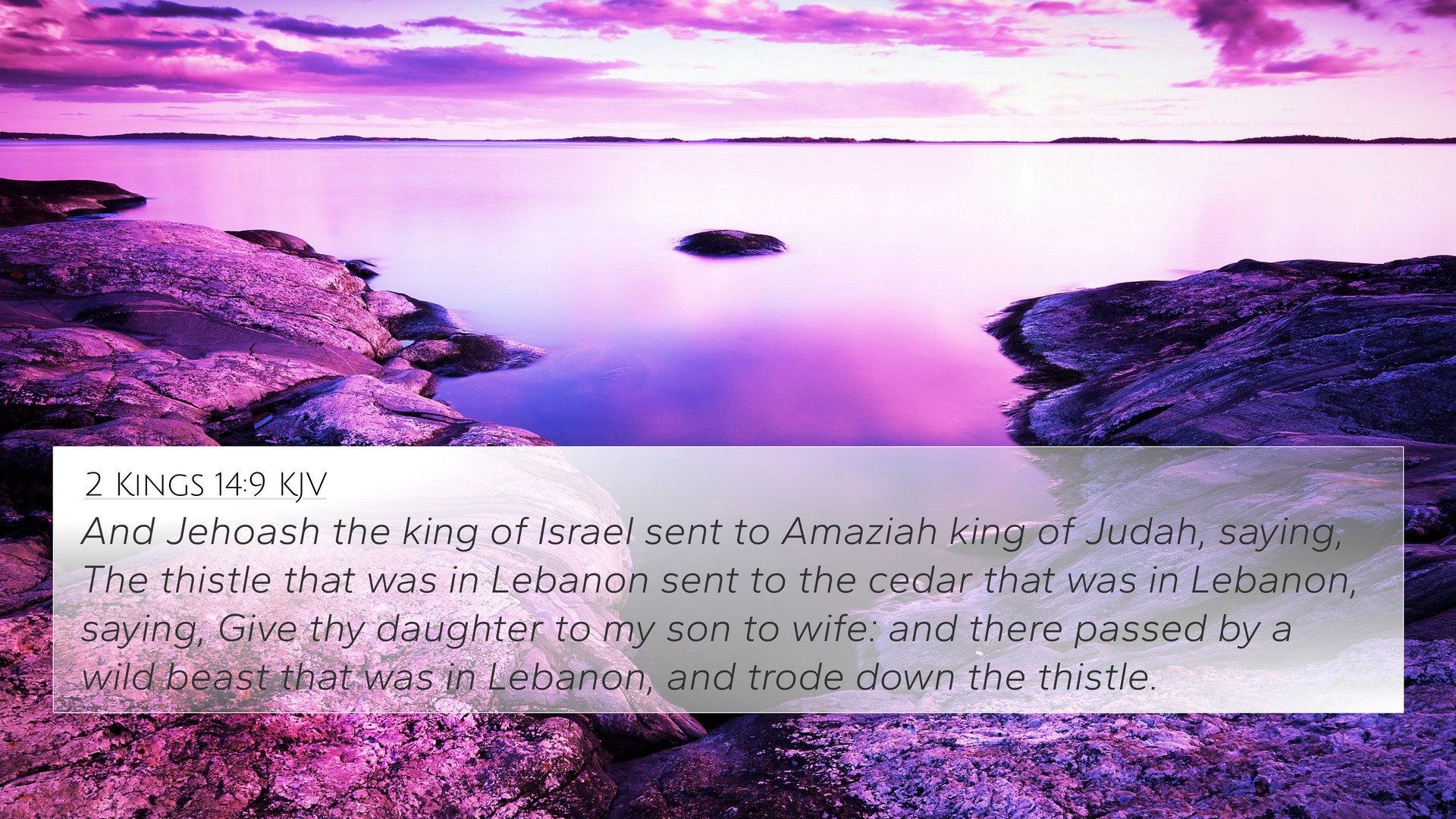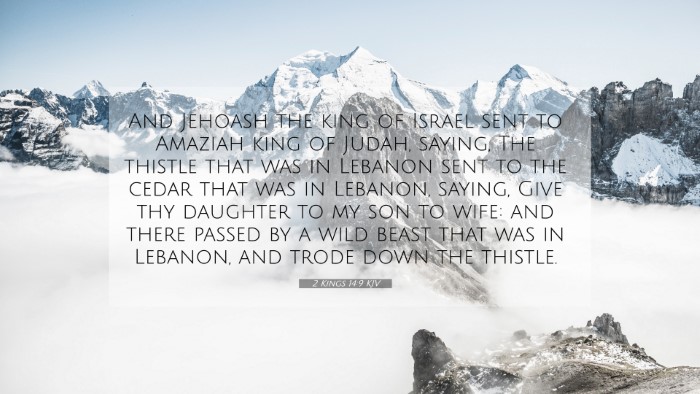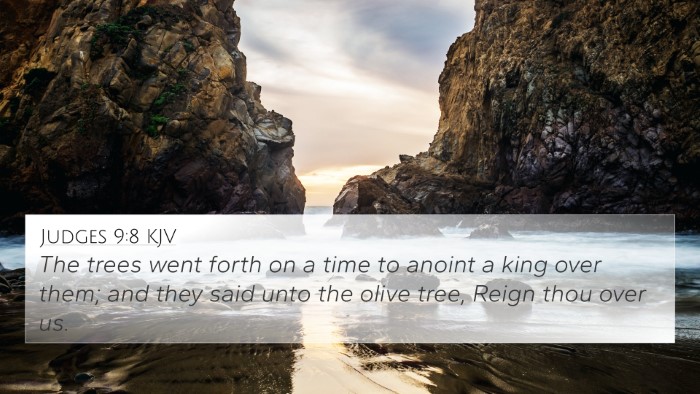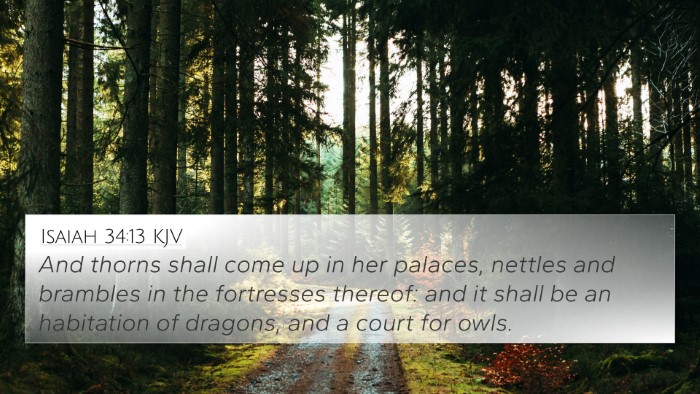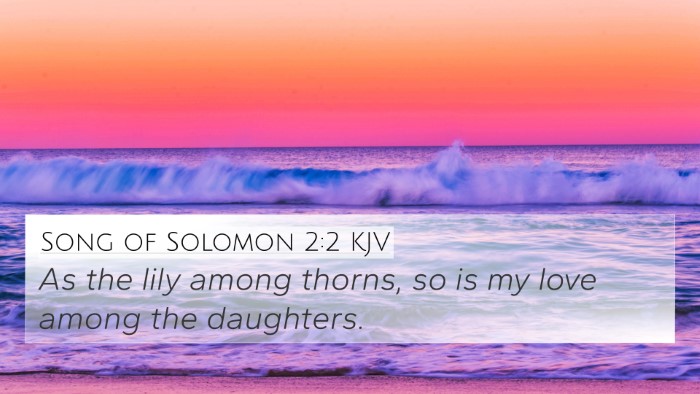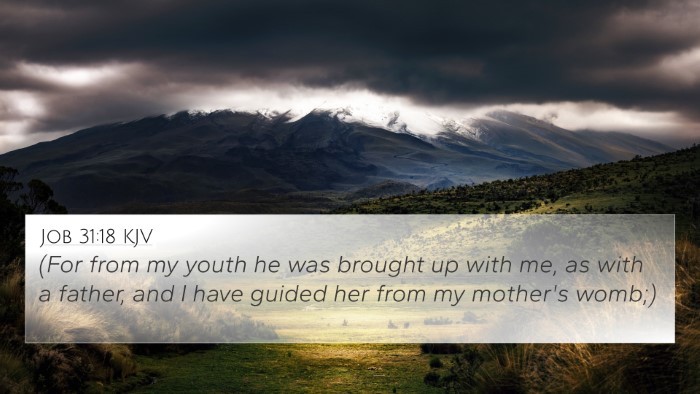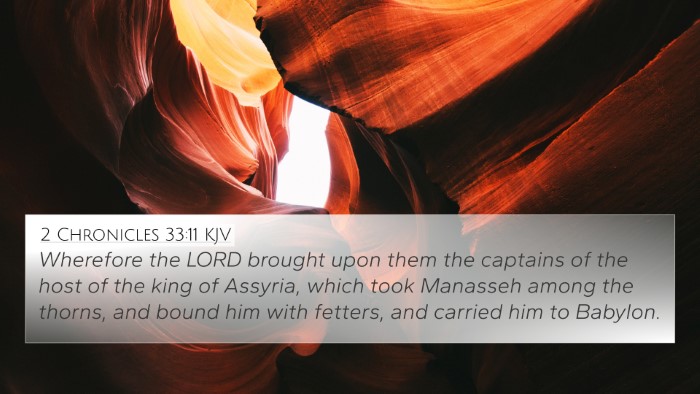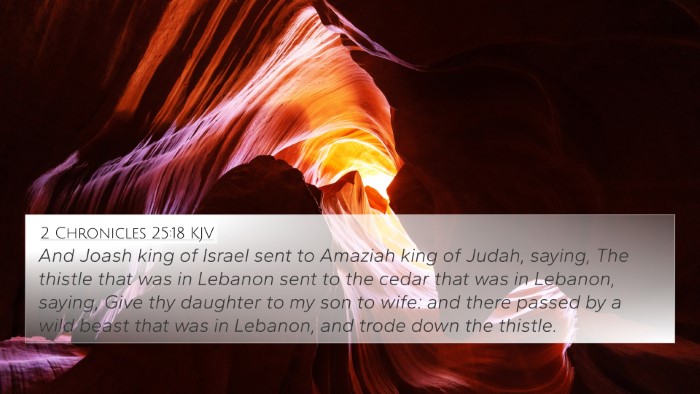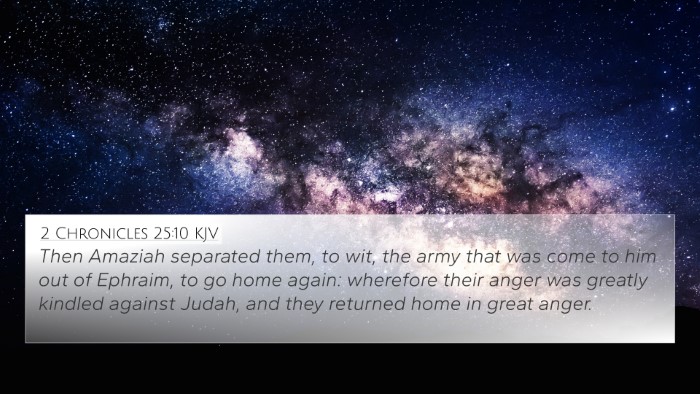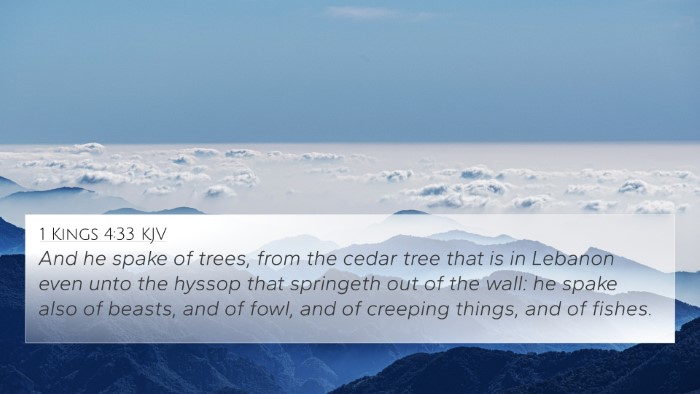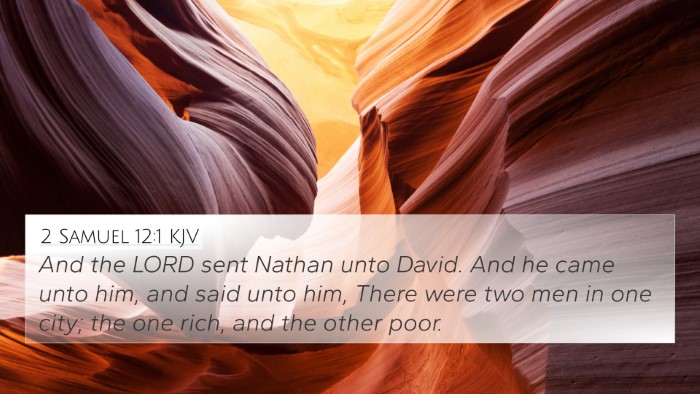2 Kings 14:9 - Summary and Interpretation
The verse 2 Kings 14:9 states: "And Jehoash the king of Israel sent to Amaziah king of Judah, saying, The thistle that was in Lebanon sent to the cedar that was in Lebanon, saying, Give thy daughter to my son to wife: and there passed by a wild beast that was in Lebanon, and trode down the thistle."
Context and Background
2 Kings 14 describes the reigns of two kings, Amaziah of Judah and Jehoash (Joash) of Israel. This particular verse focuses on a correspondence between the two monarchs, characterized by a fable-like metaphor involving a thistle and a cedar tree, suggesting themes of pride, conflict, and ultimately, destruction.
Interpretative Insights from Public Domain Commentaries
-
Matthew Henry's Commentary
Matthew Henry interprets the verse as a warning against hubris. Jehoash's message epitomizes the foolishness of overstepping one's bounds, as it involves a thistle attempting to ally with a cedar. He notes that the thistle represents Amaziah's humble kingdom in contrast to Jehoash's more powerful reign, suggesting that the ambitions of smaller powers often lead to their downfall.
-
Albert Barnes' Notes on the Bible
Albert Barnes highlights the imagery used in this verse, illustrating the futility of Amaziah's aspirations. The thistle's offer of alliance to the majestic cedar is symbolic of overreaching ambition. Barnes notes that this message from Jehoash serves to undermine Amaziah's confidence, encapsulating a larger theme of divine intervention and the folly of seeking alliances outside one's means.
-
Adam Clarke's Commentary
Adam Clarke expands on the fable-like quality of Jehoash's message, commenting on the inevitable downfall of those who do not recognize their limitations. He argues that the beast trampling down the thistle is a metaphor for the consequences that follow foolish endeavors. Clarke also underscores the political dynamics between Judah and Israel, offering insight into the historical context of their conflict.
Thematic Connections and Bible Cross-References
This verse evokes several themes found throughout Scripture, such as pride, humility, and the consequences of overambition. Below are relevant cross-references that deepen the understanding of these themes:
- Proverbs 16:18: "Pride goes before destruction, and a haughty spirit before a fall."
- Isaiah 10:33-34: "Behold, the Lord, the Lord of hosts, will lop the boughs with terror, and the tall trees will be cut down..." This emphasizes the downfall of the proud.
- Ezekiel 17:22-24: Discusses God's sovereign power to lift up the lowly and bring down the high, paralleling the themes in 2 Kings 14:9.
- Matthew 23:12: "Whoever exalts himself will be humbled, and whoever humbles himself will be exalted." This reinforces the principle of humility versus pride.
- James 4:6: “God opposes the proud but gives grace to the humble.” This highlights the consequences of pride in the light of God's grace.
- Luke 14:11: "For everyone who exalts himself will be humbled, and he who humbles himself will be exalted." A direct connection to the lesson in 2 Kings 14:9.
- Jeremiah 48:29-30: The fall of Moab serves as a thematic parallel to the fate of those who are proud and overreach.
Applications and Reflections
The narrative highlighted in 2 Kings 14:9 serves as a profound reminder of the importance of recognizing one's place within the divine order. In reading this text through the lens of cross-references, we can see a consistent biblical pattern reflecting on the nature of pride and the inevitable consequences that follow.
As believers, these themes encourage regular introspection regarding our ambitions and pursuits. God's Word stands as both guide and warning about the dangers of elevating ourselves beyond our God-given position, inviting us instead to pursue humility and dependence on His strength.
Exploring Further: Tools for Bible Cross-Referencing
For those looking to delve deeper into the connections between Bible verses, a variety of tools are available:
- Bible Concordance: A valuable resource for finding specific verses and their themes based on keywords.
- Bible Cross-Reference Guides: These provide structured connections between verses that enhance understanding.
- Cross-Reference Bible Study: Utilizing these methods can illuminate the interwoven nature of scripture.
- Bible Reference Resources: Many comprehensive tools offer detailed relationships between verses, aiding scholarly study.
Concluding Thoughts
In 2 Kings 14:9, we observe a vivid portrayal of human ambition in contrast to divine sovereignty. The resulting insights, when paired with cross-references, highlight powerful themes present throughout both the Old and New Testaments. Such examination fosters a richer understanding, encourages humility, and reinforces the importance of seeking God’s wisdom above our own ambitions.
